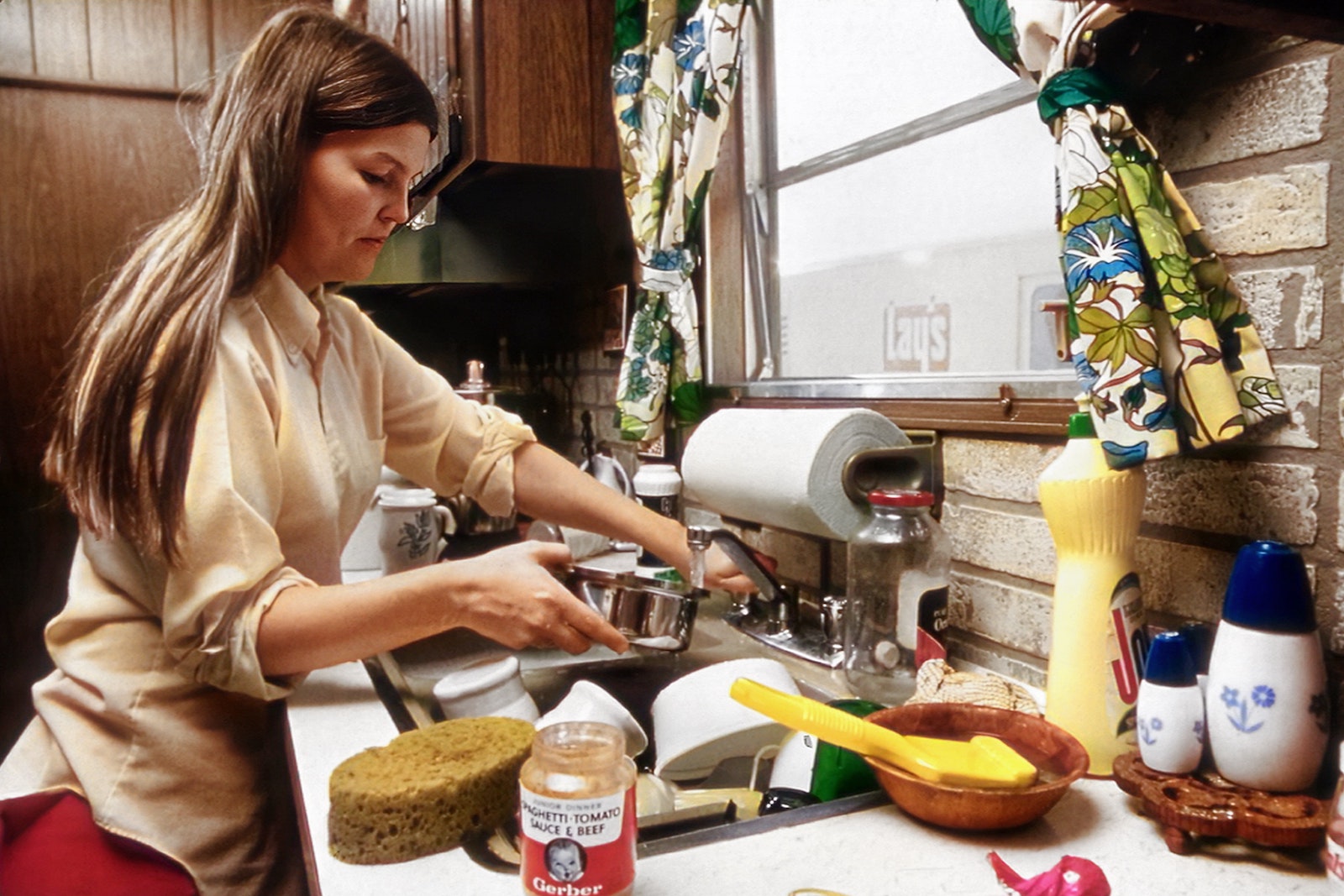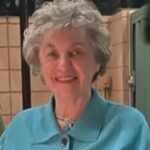Grow through the Narrow Spots by Barbara Rady Kazdan

Decades ago, I saw this message on a poster: “Grow through the Narrow Spots. Change is Inevitable – Growth is Intentional – Choose Life.” I didn’t fully grasp its meaning. But the message resonated with me, so I taped it to the wall above my desk. It’s still there. Now
I see how it applies to me and the way I’ve lived my life.
I saw the poster at a gathering of social entrepreneurs, individuals addressing issues like foster care or homelessness in new ways. Disrupting the status quo, they squeeze these pattern-breaking new approaches into broad societal acceptance. At mid-life I’d been welcomed into that community for founding two organizations, one offering a new way to address adult literacy, another expanding access to affordable eye care. For me, late to the party after decades as an at-home mom, earning a place in the company of creative, idealistic change agents was heady stuff. Why did it take so long for me to get there?
As a girl growing up in the ‘50s, coming of age in the ‘60s, I didn’t have to be told that my gender delimited my destiny: everywhere I looked society signaled “you’re the weaker sex.” Fairy tales and Disney movies promised, “Someday your prince will come” (to take care of you). Handsome heroes rescued “damsels in distress.” Top 40 hits like “There Goes My Baby,” or “Baby I Need Your Loving” infantilized women.
In school, girls’ studied “home economics;” boys took “shop.” Girls learned to cook and sew; boys to use tools and build things. In social dancing classes, girls learned to follow; boys to lead. In school sports the boys took the field while the girls cheered them on.
Like the role models portrayed in “Father Knows Best” and “Make Room for Daddy,” suburban moms like mine stayed home to raise children and manage households. Aiming for perfection, they kept their floors Spic and Span, their laundry Tide Clean, ironed their husband’s shirts to perfection, baked tuna casseroles and homemade desserts, and welcomed hubby home after his hard day’s work looking Doris Day pretty. A chubby brunette, I held little hope of landing Prince Charming. And don’t get me started about Wonder Woman, who pulled off miracles in a scanty costume showing off her hourglass figure.
Disney did a number on me, presenting picture perfect characters like Snow White, Cinderella and Sleeping Beauty, whose travails ended when a handsome prince arrived. TV and movies agreed: Marilyn Monroe, Grace Kelly and Elizabeth Taylor always landed Mr. Right. I latched on to Katherine Hepburn, shown as a smart, spirited career woman with a mind of her own, battling wits with costar Spencer Tracy in courtrooms and newsrooms.
An idealistic teen, in high school I co-authored the theme song, “Dare to Believe” for the National Brotherhood Week regional conference. I didn’t stop to wonder why the event name and nationwide celebration excluded my gender.
Mom and Dad expected my sister Julie and me to excel in school and beamed with delight when we did. So why were they thrilled when Julie dropped out of college at 19 to marry and start a family? And send me off to college hoping I’d marry before graduation day? They were proud but more than a bit nonplussed when I graduated with no marriage prospects.
Then I saw the film, Yentl, a story about a bright girl whose father teaches the Talmud, a sacred Jewish text, to the boys in his small Polish town. He also instructs his daughter, Yentl, but does so in secret because girls are forbidden to study religious scripture. When Yentl’s father dies, she disguises herself as a male, enrolls in a religious school to continue her studies, and falls in love with a boy. She can’t reveal her identity so she’s thwarted in romantic pursuits. For different reasons, so was I. To stop me from marrying outside my Jewish faith, my parents forced me to break off a relationship with my first love. They pulled out all the stops to keep us apart, hauling me off to Miami Beach during spring break; on a visit home, taking me for a drive that wound up at a psychiatrist’s office. Gone were the mellow, hands-off parents who’d raised me.
After college, while flourishing as a young professional, I viewed my work not as a step toward a fulfilling career but as a short-term diversion. I expected to marry a Jewish man and stay home to raise a family. That was what I’d been raised to do. What other path could I take? Seeing myself in Yentl’s plight, in that darkened movie theater I wept uncontrollably.
Like Yentl’s father, my grandfather studied Talmud and walked to the synagogue every morning. He swelled with pride when his son, my dad, earned the religious school perfect attendance medal that now resides in my keepsake drawer. But who were Grandpa and Daddy praying to? A deity referred to with male pronouns, a deity I imagined and still pray to as an omnipotent man.
Women’s Lib came too late for me. Long before that, “women’s place is in the home” had seeped into my subconscious, silently shaping my expectations, setting the parameters of my future self-expression to fit into the hours of 9 to 3, when the children were in school. My friends and I, bright, college-educated young marrieds, channeled our talents into volunteer roles, racing home from meetings or bake sales to meet the school bus.
Why did I squeeze my intellectual abilities and creativity into the too-tight-to-breathe roles of wife and mother? Because I’d been carefully taught by my parents and society to aim no higher than marriage and motherhood. And just like Mom, on the big screen Debbie Reynolds, Harriet Nelson and Donna Reed glowed happily in their hausfrau roles.
Raised in an era when the best girls could hope for was marrying a good provider, my mother was the only one of her three sisters to find the love of her life and, in time, financial security. No wonder she wanted her daughters to “marry well.” In her era, and still in mine, for most women marriage to a “good provider” promised the only sure path to financial security.
So, at 25, when my father died, I left an exciting, career-shaping job in a War on Poverty program and flew into the safety of marriage. As newlyweds, my husband and I pursued our careers, but it went without saying that when we became parents, I’d trade business suits for housedresses.
I left the workforce four years later to welcome a baby girl, and – surprise – her sister, 14 months later. I poured myself into ensuring our babies’ well-being and early education. Ernie, Bert and Mr. Rogers filled our mornings; the neighborhood library was a frequent stop on our daily walks. I was all in to mothering those two little ones, but isolated in a high-rise apartment with no social interactions or intellectual stimulation, often alone with the babies when hubby’s workday spilled into nights and weekends. I felt like a 19th century southern belle, squeezed into a too-tight-to-breathe corset.
Once the children were in school all day, what was I supposed to do with my time? Shop, cook, and make sure everyone had Tide-clean clothes? Make Betty Crocker brownies for lunchbox snacks and bake sales? I didn’t see any narrow spaces inviting my exploration, much less growth.
This was it? The Hollywood-hyped, Motown-boosted happy helpmate role my parents had aspired to for me, despite having seen me thrive in dynamic, male-dominated professional workplaces? A bored, restless suburban housewife, what “narrow space” could I squeeze through to find an outlet for intellectual expression?
The Beatles sang, “All You Need Is Love.” To which I say: “Yeah, Yeah, Yeah.”
 Solo, sassy Barbara Rady Kazdan loves backroads travel and forward thinking. Asking, “What’s next?” “Why?” and “Why Not?” this empty nester and lifelong change agent enjoys open-hearted friends, writing workshops, and visits to far-flung family. Sample her work here.
Solo, sassy Barbara Rady Kazdan loves backroads travel and forward thinking. Asking, “What’s next?” “Why?” and “Why Not?” this empty nester and lifelong change agent enjoys open-hearted friends, writing workshops, and visits to far-flung family. Sample her work here.
